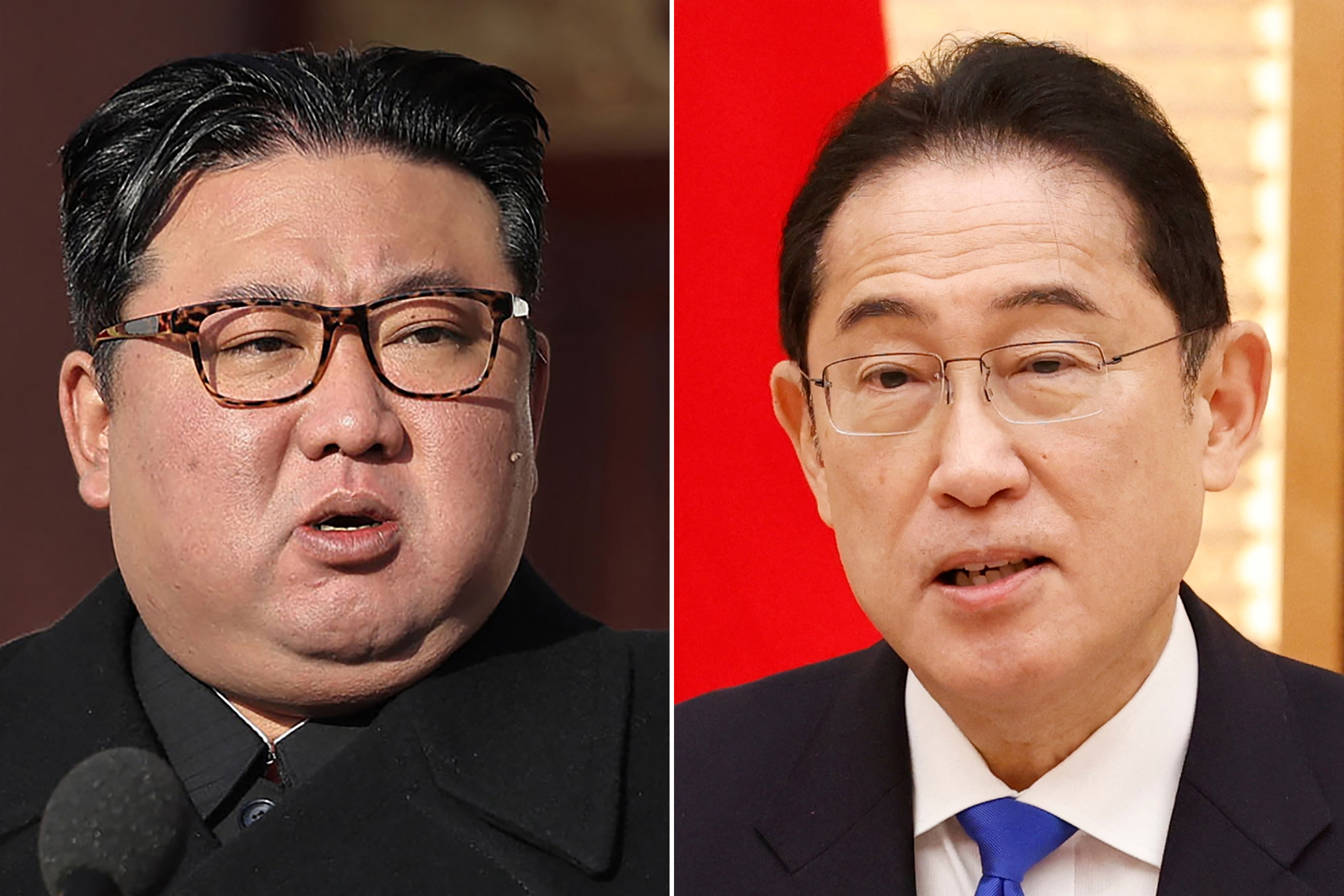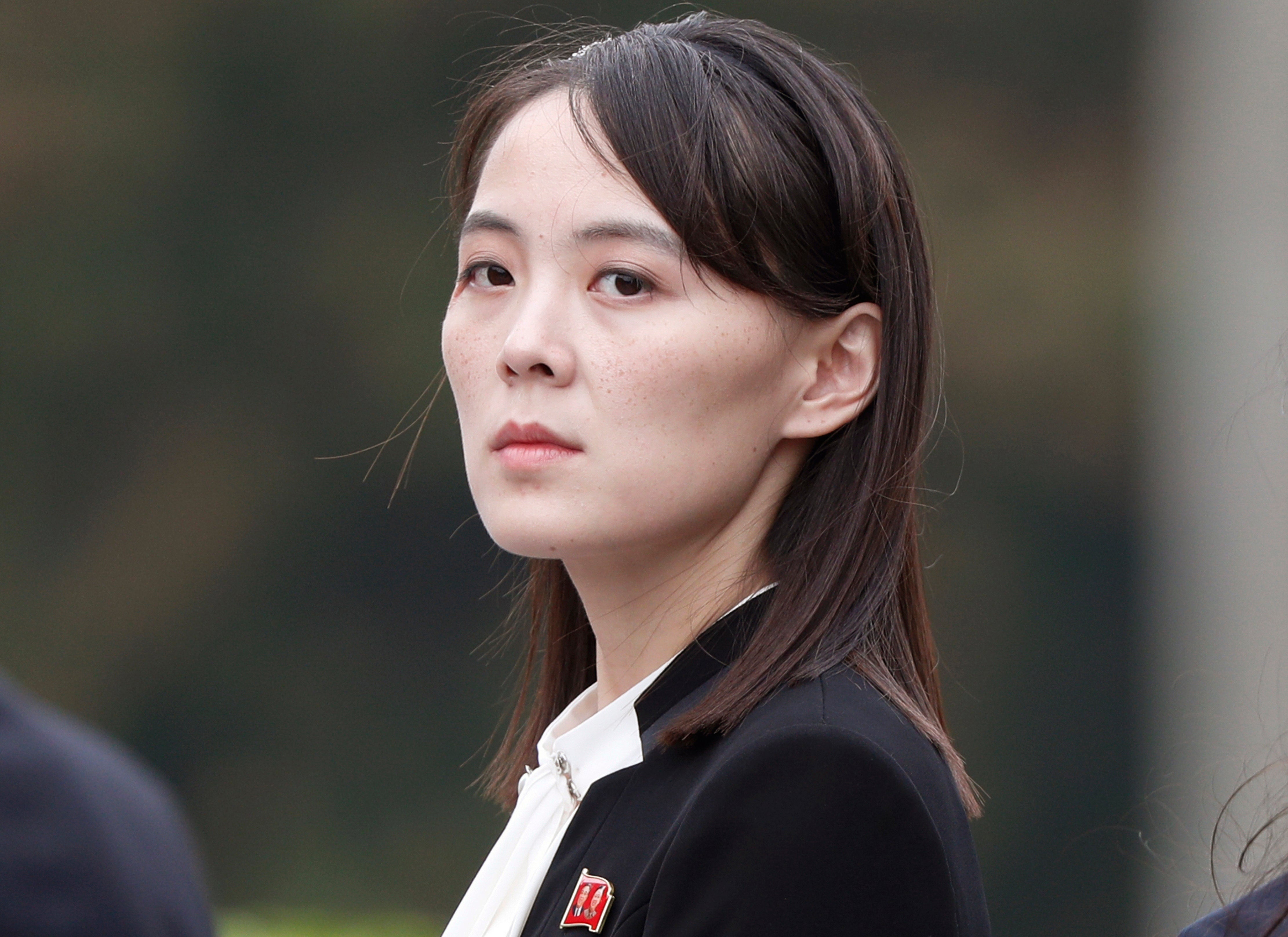Japanese PM requests summit with Kim Jong-un, says North Korea
Pyongyang sets conditions for a meeting between leaders of North Korea and Japan
North Korea says Japan’s prime minister Fumio Kishida has requested to meet Kim Jong-un “as soon as possible” in what would be the first summit between the two countries’ leaders in about two decades.
Kim Yo-jong, a senior North Korean official and the influential sister of the hermit kingdom’s leader, said the meeting would depend on Japan, which occupied the Korean peninsula from 1910-45, making “practical political decisions”.
That appears to be a reference to the issue of Japanese citizens kidnapped by North Korean agents decades ago, an episode that has overshadowed relations between the two countries ever since.
“The prime minister should know that just because he wants to and has made a decision, it doesn’t mean he can or the leadership of our country will meet him,” Ms Kim said, according to state media Korean Central News Agency (KCNA).
She said the Japanese prime minister made his intention known through “another channel”, without giving details. “What is clear is that when Japan antagonises the Democratic People’s Republic of Korea and violates its sovereign rights, it is considered our enemy and will become part of the target,” Ms Kim added.

Japan acknowledged it has been trying to arrange a bilateral summit but dismissed as “unacceptable” North Korea’s preconditions for it.
Mr Kishida on Monday reiterated the importance of a summit to resolve issues such as the abduction matter. “Nothing has been decided for now,” he told reporters.
North Korea and Japan don’t have diplomatic ties: relations have been overshadowed by North Korea’s nuclear programme, the abduction issue, and Japan’s 1910-45 colonisation of the Korean Peninsula. Japan’s colonial wrongdoing is also a source of on-again, off-again wrangling between Tokyo and Seoul.
After years of denial, North Korea acknowledged in an unprecedented 2002 summit between Kim Jong-il, the late father of Kim Jong-un, and the then Japanese prime minister Junichiro Koizumi that its agents had kidnapped the 13 Japanese. Japan believes North Korea wanted to use them to train spies in Japanese language and culture.
In 2004, Koizumi made a second visit to North Korea and met Kim Jong-il again. That was the last summit between the leaders of the two countries.
Ms Kim said there would be no breakthrough in North Korean-Japan relations as long as Mr Kishida’s government is engrossed in the abduction issue and interferes in the North’s “exercise of our sovereign right,” apparently referring to the North’s weapons testing activities.
“The history of the DPRK-Japan relations gives a lesson that it is impossible to improve the bilateral relations full of distrust and misunderstanding, only with an idea to set out on a summit meeting,” Ms Kim said, using the abbreviation of the North’s official name, the Democratic People’s Republic of Korea.
“If Japan truly wants to improve the bilateral relations and contribute to ensuring regional peace and stability as a close neighbour of the DPRK, it is necessary for it to make a political decision for a strategic option conformed to its overall interests,” she said.

In February, Ms Kim issued a similar statement, saying North Korea was open to inviting Mr Kishida to Pyongyang but that it would only be possible if Tokyo stopped taking issue with North Korea’s legitimate right to self-defence and the abduction issue.
Talk of a possible North Korea-Japan summit comes amid concerns that North Korea could further intensify its weapons testing activities in what is an election year both in the US and South Korea. Experts say North Korea would aim to use an enlarged weapons arsenal to win concessions from the US such as sanctions relief.
“While North Korea may be waiting out elections in South Korea and the United States before re-engaging those countries in diplomacy, it probably wants to strengthen its hand by developing weapons and driving wedges between US allies,” said Leif-Eric Easley, a professor of international studies at Ewha Womans University in Seoul.
“Kishida feels political urgency to address the abductions issue and is thus showing diplomatic effort.”
The impoverished North also considers any possible Japanese economic assistance it could receive if the two countries normalised their ties, said analyst Moon Seong Mook with the Seoul-based Korea Research Institute for National Strategy. He said North Korea could seek the current value of the Japanese assistance that South Korea received when those two countries normalised their ties in 1965 – $500m – or more.
South Korea’s foreign ministry said on Monday it was closely communicating with Japan on Tokyo-Pyongyang contacts and the North Korean nuclear issue. It said that South Korea, the US and Japan are working closely together to return North Korea to a path of denuclearisation.
North Korea’s advancing nuclear and missile arsenals pose a major security threat to Japan as well as South Korea and the United States. The three countries have expanded their trilateral training exercises in response to the North’s provocative run of weapons tests since 2022. Japan and South Korea are two of America’s key allies in the region, together hosting about 80,000 US troops in their territories.
Additional reporting by agencies
Join our commenting forum
Join thought-provoking conversations, follow other Independent readers and see their replies
Comments
Bookmark popover
Removed from bookmarks